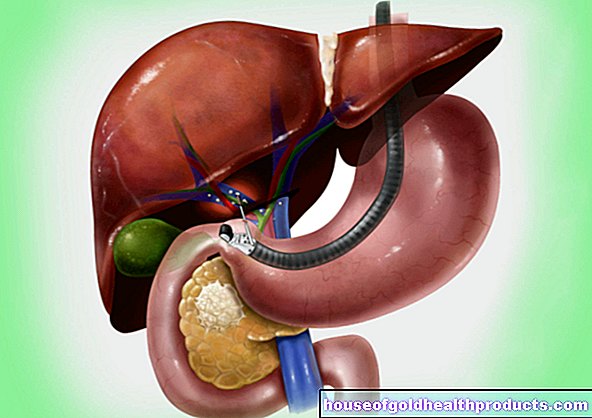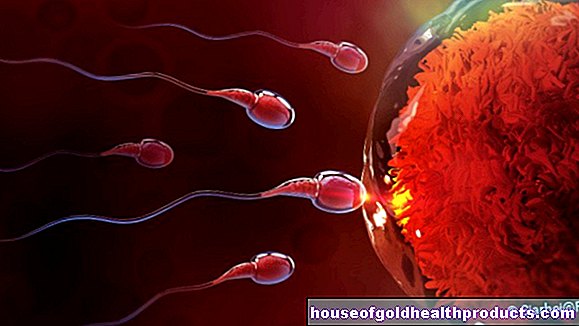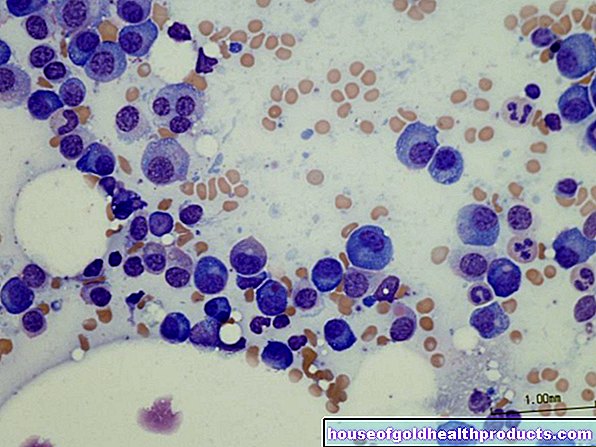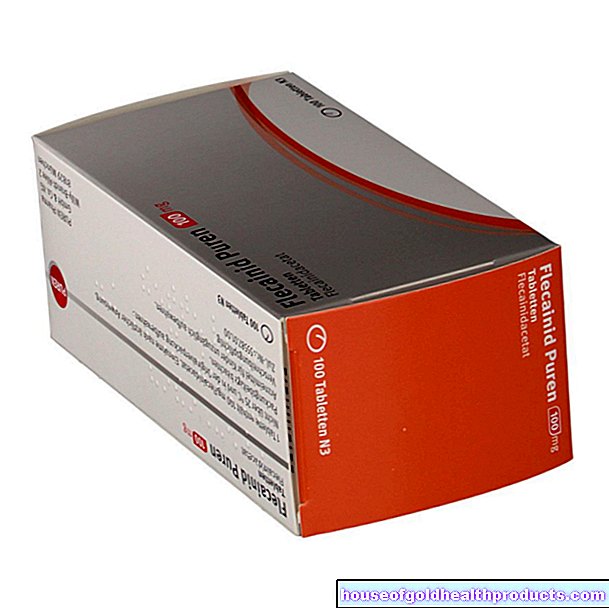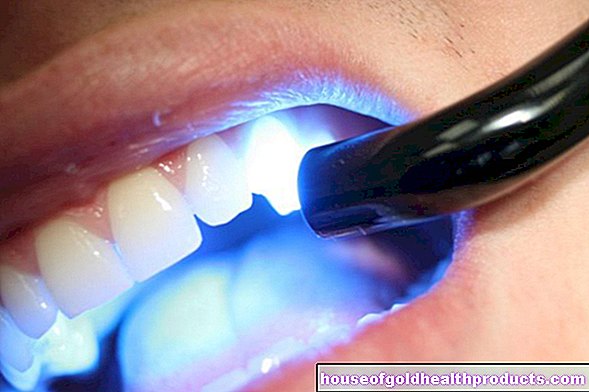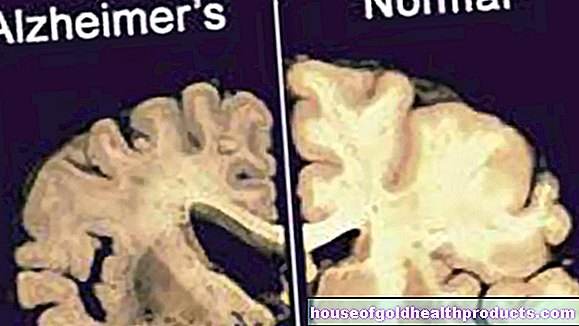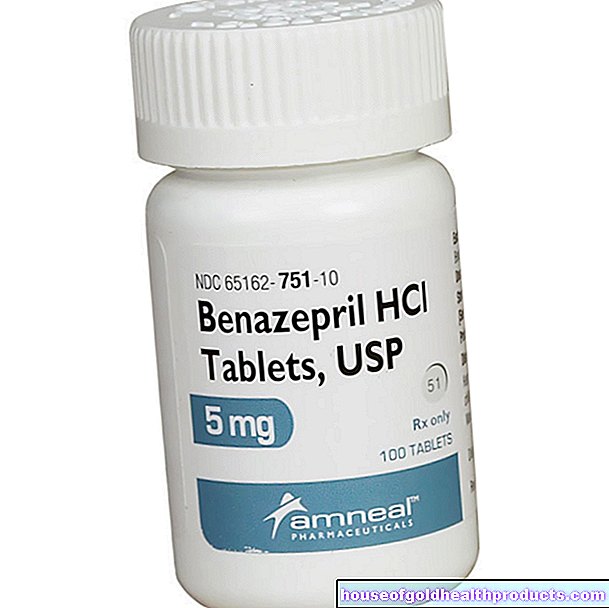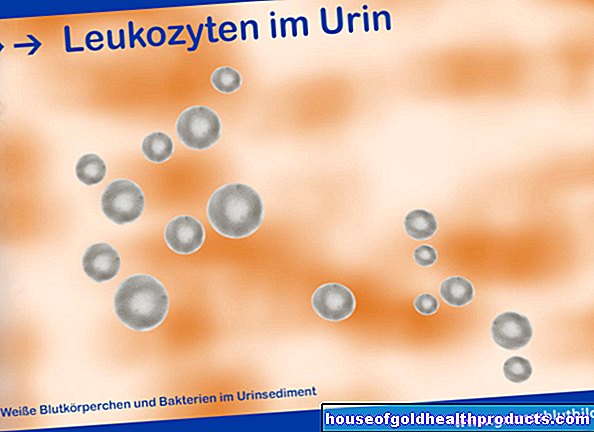Heart attack: intestinal bacteria influence risk
Christiane Fux studied journalism and psychology in Hamburg. The experienced medical editor has been writing magazine articles, news and factual texts on all conceivable health topics since 2001. In addition to her work for, Christiane Fux is also active in prose. Her first crime novel was published in 2012, and she also writes, designs and publishes her own crime plays.
More posts by Christiane Fux All content is checked by medical journalists.Which bacteria colonize the intestine also affects the individual risk of heart attack. Some people in the intestine produce substances that protect the heart - others increase the risk.
Gut bacteria are living factories. They tirelessly metabolize everything that ends up in the intestines. The extent to which the resulting metabolic products influence human health has been one of the major research topics in recent years.
Two studies have now shed light on the effects of intestinal bacteria on heart health. One shows how certain metabolic products of the microbes can prevent heart disease. The other presented a metabolite that is harmful.
Heart protection from the intestines
One of the heart protectors produced is propionic acid, as researchers led by Prof. Dominik Müller have now discovered. This short-chain fatty acid is produced when gut bacteria break down fiber. The substance has it all: it armors the heart against the harmful consequences of high blood pressure, arteriosclerosis or a pathological enlargement of the organ. Propionic acid works by appeasing certain immune cells, the T helper cells. These otherwise fuel inflammatory processes that initiate the pathological changes.
The new study explains why a high-fiber diet, as recommended by nutritionists for many years, helps prevent cardiovascular disease. The researchers found this out in experiments with mice: They fed propionic acid to animals with high blood pressure. The animals then had less pronounced heart damage or abnormal enlargement of the organ and were subsequently less susceptible to cardiac arrhythmias. Vascular damage such as atherosclerosis was also less pronounced in the rodents.
Immune cells as allies
However, if the scientists switched off a special subtype of T cells, the so-called regulatory T cells, in the body of the mice, the propionic acid was ineffective. The immune cells are therefore necessary for the beneficial effect of the substance. “It was only through our study that it became clear that it affects the heart and blood vessels via this detour,” said the researchers.
When gut bacteria eat meat
Another study shows that intestinal bacteria can also produce heart-damaging substances. Some of the bacteria first metabolize L-carnitine to trimethylamine. This is then converted to trimethylamine oxide in the liver.
Trimethylamine oxide apparently stimulates skin cells, which line the blood vessels inside, to produce substances that promote blood clotting and vascular inflammation. This in turn attracts blood cells, so-called monocytes. They cause inflammatory processes and thus promote atherosclerosis and thrombosis and thus heart attacks and strokes.
The raw material carnitine is contained in large quantities in red meat, but also in some dietary supplements. This could explain why people who eat a lot of meat are at a higher risk of heart attack.
The substance is particularly dangerous for people who have already suffered a stroke or heart attack. German and US researchers followed the health development of 600 patients. "We found that patients with a high concentration of trimethylamine oxide in their blood had a double to five-fold higher risk of a second heart attack or stroke than patients with a low concentration of the metabolite," says Ulf Landmesser, Director of the Clinic for Cardiology at the Charité.
New approaches to drugs
The studies thus confirm two well-known dietary rules: Eating fiber is good, meat consumption is more harmful to the heart. However, the findings could also be reflected in drug therapy in the future.
For example, patients who have already suffered a stroke or heart attack are currently receiving blood-thinning medicines. But they also have their downsides: "Conventional drugs that inhibit blood clotting reduce the risk of heart attack, but at the same time increase the risk of bleeding," explains Landmesser.
Heart protection without the risk of bleeding?
By influencing the intestinal bacteria, the risk of heart attack and stroke could be reduced without increasing the risk of bleeding at the same time. "That could possibly be a particularly elegant way of achieving the goal," says the scientist.
Propionic acid, on the other hand, may be useful as a preventive drug, especially for people whose blood levels are particularly low. It is already clear that propionic acid is safe for human consumption and also inexpensive to manufacture: The substance has been used as a preservative for centuries and is approved as a food additive. Therefore, their use in medicine could be implemented comparatively quickly.
Tags: smoking medicinal herbal home remedies nourishment

-infektion.jpg)
